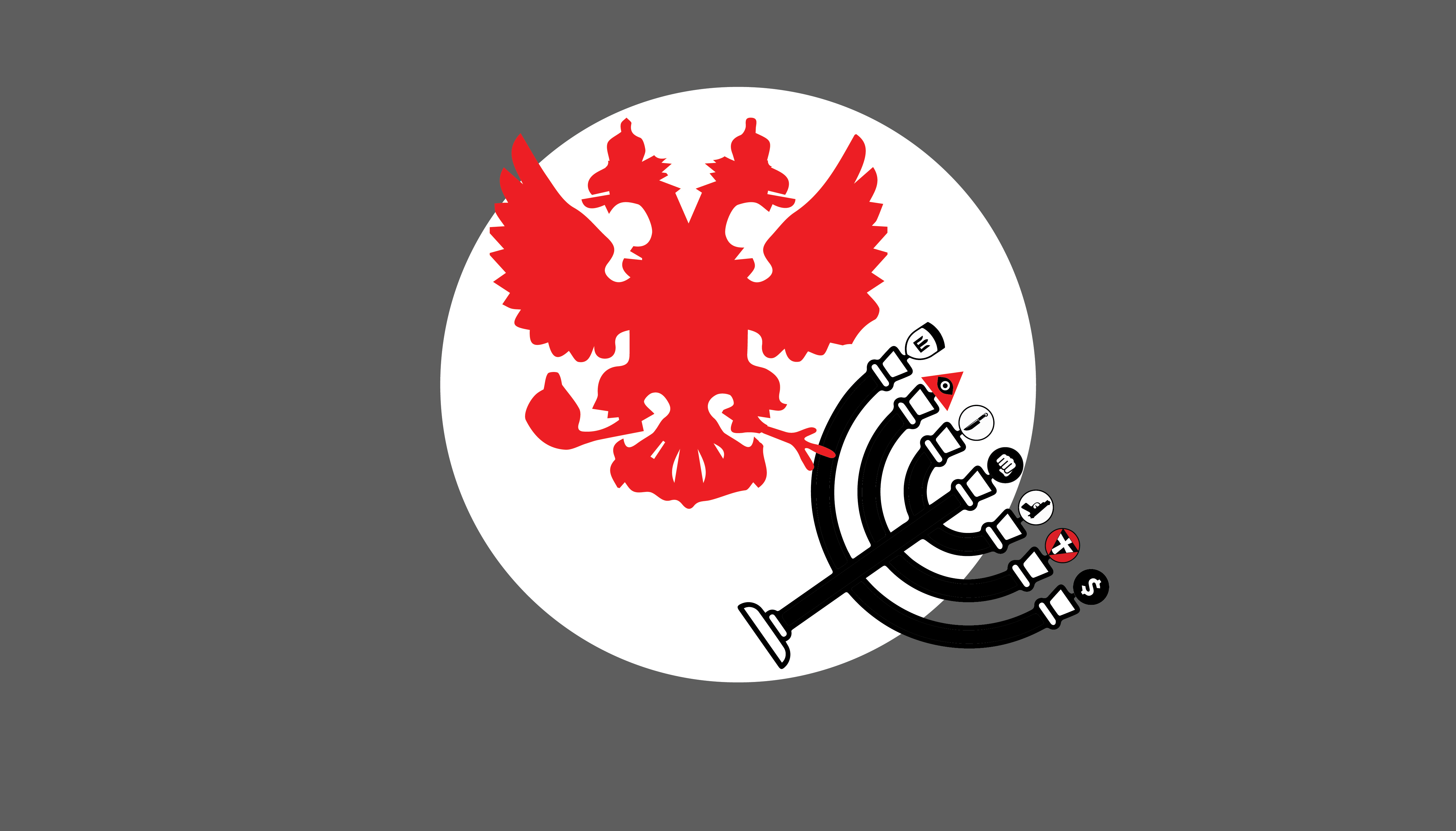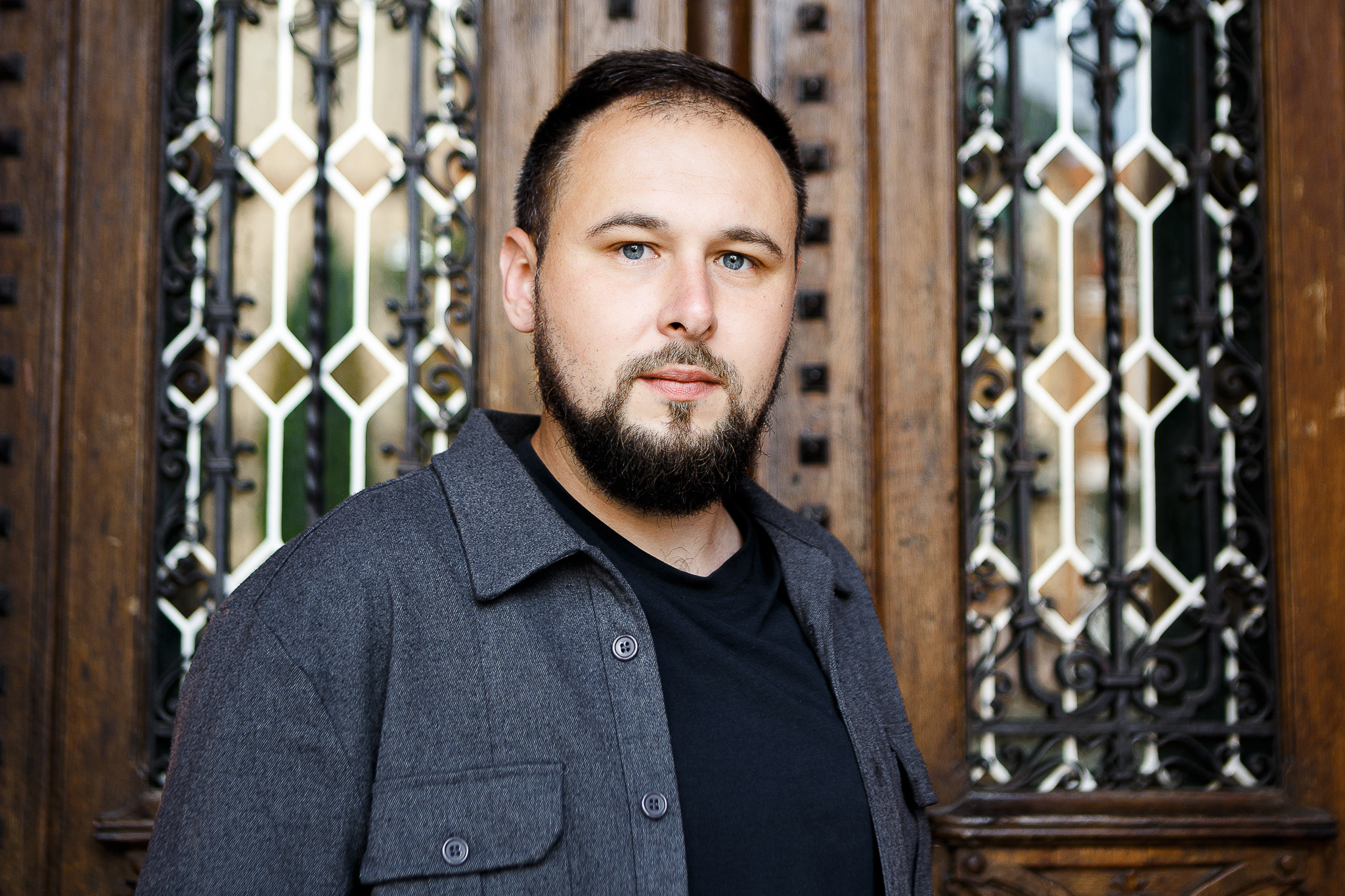All Ukrainians hate Jews, but Jews have taken over Ukraine.
Russian propaganda employs long-standing anti-Semitic narratives and stereotypes to undermine, threaten, and belittle the accomplishments of Ukrainians. The Russian media frequently disseminates anti-Semitic remarks about Volodymyr Zelenskyy, either accusing him of alliances with the hypothetical “world Jewish government” or, in a contradictory vein, asserting that he is “not a genuine Jew.”
The tactics and strategies employed by Russian propaganda are consistent, prominently featuring the use of anti-Semitic rhetoric. Below are a few examples.
Russian propagandists resort to ambiguous language and manipulation of words to advance political objectives. They have, for instance, argued that by electing Volodymyr Zelenskyy, Ukrainians essentially propelled the “Chabad-Lubavitch sect” into power and that the Ukrainian President himself was a “Jewish Nazi”. It’s further alleged that the Chabad-Lubavitch, a religious movement in Judaism, seeks the annihilation of Russians.
In October 2022, one of Russia’s premier propaganda platforms, Argumenty I Fakty, featured an article by Alexei Pavlov, the Deputy Secretary of the Russian Security Council. In this piece, he labeled Chabad a sect and attributed membership to Arseniy Yatsenyuk, Ihor Kolomoisky, and Viktor Pinchuk. Following this publication, Pavlov was relieved of his duties.
In reality, the Chabad is an Orthodox Jewish movement, a religious community of Hasidic Jews, that proliferated in Eastern Europe following the dissolution of the USSR. Russian anti-Semitic propaganda habitually links “Chabadists” with “global conspiracy theories”, imposing baseless allegations on them.
Specifically, Jews belonging to this sect of Hasidism have been blamed by the Russian media for establishing arms and ammunition storage for the Ukrainian military. This purportedly resides in the basement of Menorah, the largest Jewish cultural center in Dnipro, which is described as the “Chabad’s command center.”
A recurring motif in Russian propaganda is the indictment of “corrupt individuals led by Zelenskyy”, who are supposedly seeking to “wipe out all Christian Orthodoxy in Ukraine.” The Russian media, through equivocation, grumbles about the “oppression of the Orthodox faith.” However, it fails to clarify that security actions are being implemented solely against priests of the UOC-Moscow Patriarchate suspected of Russian collusion, not against all Orthodox Christians. This narrative leverages a deeply ingrained anti-Semitic fable that “Jews are responsible for Christ’s death,” and thus, they are currently “persecuting Christians in Ukraine.”
Russian propaganda employs the tactic of discrediting to minimize its wartime atrocities in Ukraine. In March 2022, propagandists denied any damage to the structures at the Babyn Yar Memorial complex following the missile attack on the Kyiv TV tower. They alleged that Ukraine was fabricating an information campaign to tarnish Russia’s global reputation. Contrary to these claims, the area designated for the construction of the Holocaust memorial museum was, indeed, damaged by the missile attack perpetrated by the aggressor country.
Former Russian President Dmitry Medvedev asserted that Volodymyr Zelenskyy supposedly “intentionally disavowed his Jewish heritage to accommodate nationalists.” Vladimir Solovyov, one of the Kremlin’s leading propagandists, argued that “Zelenskyy can’t be a true Jew as he governs a Nazi state.” Numerous other mouthpieces of Russian propaganda disseminated the notion that the Ukrainian President “betrayed his Jewish forebears, particularly his grandfather.” This narrative was spurred by Zelenskyy’s claim that both the USSR and Germany instigated World War II, during which the Holocaust occurred. Such repeated assertions by propagandists aim to discredit Ukraine and impose a Russian interpretation of history.
The Russian propaganda apparatus applies labels with negative implications or connotations to individuals, events, and phenomena. For instance, propagandists labeled the Azov battalion a “Nazi Jewish organization,” allegedly established by “gay Chabad member Andrii Biletskyi to annihilate Russians.” Hence, members of Azov were not merely tagged as “Nazis” but also branded “Chabad fascists.” This tactic aimed to sway the anti-Semitic Orthodox audience of Russian propaganda, with the ultimate objective of dehumanizing Ukrainians.
Russian propagandists disseminated alleged traditional Russian adages such as “a Khokhol was born — a Jew made the sign of the cross” or “a Khokhol was born — a Jew cried.” Russian media and social media users interpreted these sayings to mean “Ukrainians are even more greedy than Jews,” constantly seeking additional financial aid from their European partners and the United States.
The tactic of mirroring is utilized by the Russian propaganda mechanism to obscure its own transgressions by attributing them to Ukrainians. While disseminating anti-Semitic rhetoric, Russian propaganda blames Jews for military and civilian fatalities, as well as the destruction in Ukraine. Jews are accused of seizing power and committing war crimes, while the “Khokhols suffer,” as was repeatedly declared by the collaborationist Illia Kyva.
Russian propagandists circulated on social media the notion that the objective of “global Zionism” is a protracted war in eastern and southern Ukraine with the aim to “eradicate all Russians and Ukrainians inhabiting those regions. Subsequently, they plan to expel the remaining inhabitants from Crimea and the Donbas and relocate Jews to these lands, as a major conflict in the Middle East could soon necessitate the evacuation of Jews from Israel.
The intention of this propaganda strategy is to absolve Russians of responsibility by exploiting anti-Semitic stereotypes. Concurrently, the Russian propaganda machine depicts Ukrainians as victims, seemingly justifying Russia’s purported “liberation of Ukraine” from imagined foes, in this case, the mythical “world Jewish government.”
Over-Simplification of Reasons
Russian propaganda often resorts to over-simplification, offering basic explanations for multifaceted social, political, and cultural phenomena. For instance, propagandists repeatedly assert that “all Ukrainians harbor hatred for Jews and were their executioners during World War II.”
The history of the Holocaust and numerous historiographical discourses on Ukrainian collaborationism illustrates the intricacy of the events that unfolded in Ukraine during the Nazi occupation. Among Ukrainians, as with any other nation, there were both culprits and victims, passive observers and rescuers of Jews. These social roles were fluid and could alter in response to changing circumstances. On the one hand, over 2,500 Ukrainians were recognized as Righteous Among the Nations for saving Jews during the Holocaust. On the other hand, historians Andriy Usach and Yuriy Radchenko, among other national and international scholars, have documented the involvement of certain Ukrainian political factions or individuals with the Nazis and their complicity with the Holocaust. Meanwhile, the topic of Russian collaborationism with the Nazis is conspicuously absent in the aggressor country.
In May 2022, Russian Foreign Minister Sergei Lavrov contended in an interview that the “denazification of Ukraine” doesn’t contradict the fact that President Volodymyr Zelenskyy is of Jewish descent. According to him, “Hitler was also a Jew, and the most significant anti-Semites are Jews themselves.” This statement was met with strong condemnation from Israeli Foreign Minister Yair Lapid, who summoned the Russian ambassador for an explanation. “Jews did not perpetrate the Holocaust against themselves. The ultimate form of anti-Jewish racism is to accuse Jews of anti-Semitism,” Lapid retorted.
What is the true state of Ukrainian-Jewish relations?
In the years preceding the full-scale war, there was a noticeable reduction in anti-Semitism and hate crimes in Ukraine. The human rights organization Freedom House reported no instances of anti-Semitism in Ukraine instigating physical violence in 2022.
Israel condemned Russia’s invasion of Ukraine in mid-March 2022. Earlier, on March 1, the Israeli Foreign Ministry responded to the shelling of Babyn Yar in Kyiv, condemning the attack and urging the “preservation of the sanctity of this site.” The attack by the terrorist state was also denounced by Chief Rabbi of Ukraine Moshe Reuven Azman, Chairman of the Association of Jewish Organizations and Communities of Ukraine (AJCU) Yosyf Zisels, Director of the Ukrainian Center for Holocaust Studies Anatoly Podolsky, and other prominent figures in the Ukrainian Jewish community.
Since the beginning of the full-scale war, Israel has extended aid to Ukraine in the form of medical equipment and supplies, military and civilian protective gear, generators, armored ambulances, and food. Furthermore, Israel has welcomed Ukrainian soldiers and civilians for medical treatment and offered employment and educational support to refugees.
In November 2022, Israel authorized other countries to supply Ukraine with Israel-made weapons. In early February 2023, Israeli Prime Minister Benjamin Netanyahu, for the first time, broached the potential supply of the Iron Dome air defense system to Ukraine. In short, Russia’s anti-Semitic rhetoric aimed at undermining Ukraine has not yet impacted Israel’s stance on the Russian-Ukrainian conflict.
However, at the same time, Russia persists in exploiting anti-Jewish myths and stereotypes in its propaganda offensive against Ukraine. This disinformation is primarily targeted at the domestic Russian populace. Accordingly, levels of anti-Semitism in Russia are on the rise.



